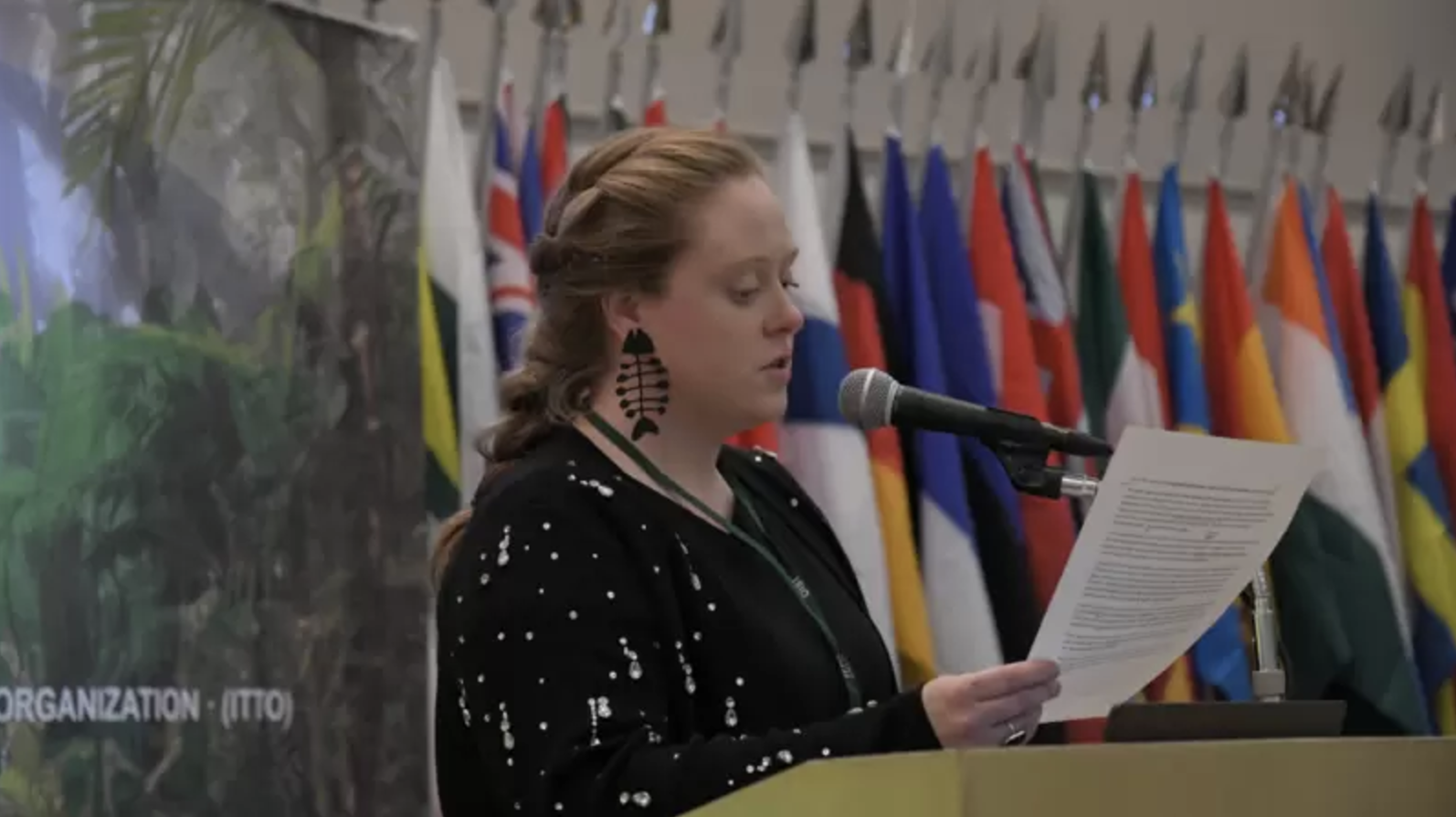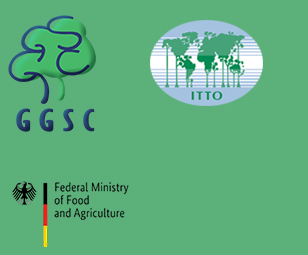

On December 3 during the Trade and Markets Day of the 60th Session of the International Tropical Timber Council (ITTC60), the Executive Director of International Wood Products Association (IWPA) read out the Trade Statement 2024 prepared by the Trade Advisory Group (TAG). The statement pointed out that the Global Legal and Sustainable Timber Forum (GLSTF) provides an effective pathway to address the challenges currently faced by the timber industry, and it seems a natural fit now for ITTO and GLSTF to work together on addressing the negative perceptions in the market.
The Trade Advisory Group (TAG) was established in 2000 at the Twenty-eighth Session of the International Tropical Timber Council. It provides inputs to the ITTC’s policy development work and other activities relevant to the global timber trade. Among other things, TAG coordinates and hosts the ITTO Annual Market Discussion, which is a global forum held in conjunction with sessions of the Council to explore issues vital to a sustainable tropical timber trade.
The full text of the Trade Statement 2024 is as follows:
Trade Statement 2024
The TAG welcomes the proposal from the European Commission to delay the EUDR application date by 12 months to 30 December 2025 which will allow more preparation time for the timber industry to comply. However, the industry is concerned over the uncertainty of the delay as well as new 11th hour amendments, which are problematic for multiple reasons.
While we acknowledge that ITTO is not able to impact either the delay or the regulation, we would be remiss if we did not highlight this issue, given the seismic impacts the EUDR has and will have on the global forestry policy and trade. We urge the Commission to work with both Consumers and Producers to ensure a smooth implementation of the EUDR.
The tropical timber markets are very unsteady at present and there are a lot of unknowns ahead. The World Bank’s latest Global Economic Prospects report highlighted the struggles and slow recovery of global trade in 2023 marking one of the weakest performances in 50 years outside of global recessions.
Today, wood product manufacturers everywhere are reeling from skyrocketing shipping costs and irregular shipping schedules due to, firstly, the drought in Panama severely curtailing ship passages through the Canal; and secondly, the ongoing conflicts in the Red Sea region. The complaints about the logistics in exporting timber products are loudest from Vietnam, China, Indonesia, Brazil, and Malaysia.
Exporters in many producer countries are not happy that shipping companies are using the continuing fallout from the Covid pandemic and geo-political conflicts as reasons to increase marine freight and other logistics costs. Prior to these recent increases, freight charges from Southeast Asia to the US or EU were around US$ 2,000 per 40 foot container. In the post-Covid pandemic, freight charges soared between US$ 18,000 - 20,000, and now, because of the war in Ukraine and the Red Sea chaos, freight charges are varying between US$ 8,000 - 10,000 to the US and EU markets. Ultimately, these costs will not only depress trade but be passed along to the consumer, at a time when price consciousness is an increasing barrier to the use of wood.
So, in the midst of all these global uncertainties, what can ITTO do to help the timber industry?
The Global Legal and Sustainable Timber Forum (GLSTF) was created in 2023 by ITTO and Macao’s Commerce and Investment Promotion Institute, and the inaugural Forum was convened in 2023. In September 2024, the GLSTF launched the Action Framework for Promoting Legal and Sustainable Timber Supply Chains to strengthen international collaboration among stakeholders in timber supply chains, promote the sustainable development of the timber industry, contribute to the Sustainable Development Goals, and combat climate change.
In her opening address at GLSTF 2024, ITTO Executive Director Sheam Satkuru asserted that the GLSTF is a collaborative platform of timber industry stakeholders designed to strengthen networking and business exchanges among timber industry stakeholders to facilitate sustainable forest management and the legal and sustainable use and trade of timber and wood products.
During that GLSTF meeting in Macau and subsequent discussions among TAG members globally it was established that the buyers of tropical timber in our traditional markets are not receiving information about the progress tropical timber producers have made and are continuing to make towards SFM. There is a need for a mechanism to communicate, educate, promote, market, and publicise the tremendous progress tropical timber producers have made and are continuing to make since the Rio Earth Summit in 1992 on traceability, legality, and sustainability.
It seems a natural fit now for ITTO and GLSTF to work together on addressing the negative perceptions in the market. Firstly, a Working Group of stakeholders could be formed to define what and how to communicate to the buyers of our products. The information of what the producers have been doing towards SFM could be collated to be used in a campaign to address consumer negative perceptions.
TAG proposes that resources and finances could be set aside to employ a dedicated person to handle this important task. There is a desperate need for a person, working without distractions, to undertake the task with help from all ITTO Members.
This 100% focus on rebuilding demand for tropical timber trade is what TAG seeks from ITTC today. Together, we can create a narrative that demonstrates what we all know – that wood is sustainable, that trade benefits forests, and that together, we can protect tropical forests for the future.

| E-mail:ggsc@itto-ggsc.org | Tel:86-10-62888626 |


Sigh Up for Emails |
|